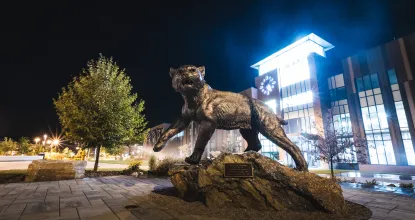During my journey of becoming a social worker, I have taken courses specifically designed to emphasize the importance of social justice and activism. Classes such as Child Welfare, Social Welfare Policy, and Gender and Society have broadened my horizons as to what it truly means to be a supportive ally for at-risk communities. Although these courses taught me skills that will be exercised in my career, the course that provided me the most opportunity to participate in genuine activism in our community was Community Organizing. This course is designed to integrate Bachelor of Social Work (BSW) students and Master of Social Work (MSW) students in the hopes that creative change can be made in our area. This was precisely what manifested itself this past fall semester of 2021. I was placed in a group with four other students, half of whom were BSW students and half MSW students. At the beginning of the semester, we were told by our professor, Abigail Wyche, to choose an issue we felt needed to be addressed among the community here at Northern Michigan University (NMU). Beginning as strangers, my teammates and I attempted to discover what we all had a common concerns for. We decided that the issue we would create discourse for, was what we unanimously saw as a lack of diversity on the NMU Board of Trustees (BOT).

From establishing our issue, we moved forward into the action stage. My teammates and I conducted research, created a petition, read through multiple BOT public meeting notes, and organized an interview with a member of the BOT. My main role in this project was to setup and conduct that interview to see if the sitting Board sees the same lack of diversity we do. After the interview, I came away thinking that at least this one member perceives the current Board as already having a lot diversity, and therefore, doesn’t think there is a problem that needs to be changed. For me, it became clear that their understanding and my understanding of diversity are not the same. Whereas it seems that Board member was talking about the kinds of diversity of ideas that don’t always show up on the face of things; I see the lack of demographic diversity among the BOT as an isolating problem that creates a disconnect for students, when they don’t SEE or HEAR their experiences represented in the highest leadership body of the University. For example, I think that if NMU wants to recruit and retain more students of color, it’s important we make all parts of NMU look and feel like a home for them, too. And like I said in the beginning, I personally am very interested in social justice, and I think it goes hand in hand with diversity. Social justice one of our core professional values in social work.
In the NASW Code of Ethics, it says that social workers should challenge injustice by pursuing change “with and on behalf of vulnerable and oppressed individuals and groups of people. Social workers’ social change efforts are focused primarily on issues of poverty, unemployment, discrimination, and other forms of social injustice. These activities seek to promote sensitivity to and knowledge about oppression and cultural and ethnic diversity. Social workers strive to ensure access to needed information, services, and resources; equality of opportunity; and meaningful participation in decision making for all people” (2021).
So, the group from my class is also specifically interested in making sure that the voices of those who experienced oppression (i.e., BIPOC, LGBTQAI, and people with disabilities) are fairly represented in positions of power, like on the NMU Board of Trustees. Because diversity means different things to different people, our group has decided that more conversations between members of the Board of Trustees and other stakeholders (students and community members) need to occur if change is going to be possible. Therefore, we’ve decided to involve other student groups, like ASNMU, in our discussions about diversity on the Board of Trustees and to start a petition that anyone can sign. To date, our petition has reached 31 signatures and we hope that, although the course has ended, conversations surrounding this
issue continue to take place and encourage change.
Before the semester ended, we also researched Michigan law to understand how Boards of public Universities in this state are appointed, as well as how long members retain their positions. It seems the Governor has the most power to bring diversity to the Board at NMU through her choices to fill vacant positions; and, the state legislature would have to act to make changes in the 8-year term length for NMU Board members set forth in the code. With that in mind, several of our group members decided to write letters to state politicians about what we see as a need for change.
In the end, I believe that my teammates and I created a conversation and a platform for voices to be heard that was non-existent prior to our project, and I am proud of it. I am excited to continue using these activism practices to promote social justice in my future career as a social worker.
